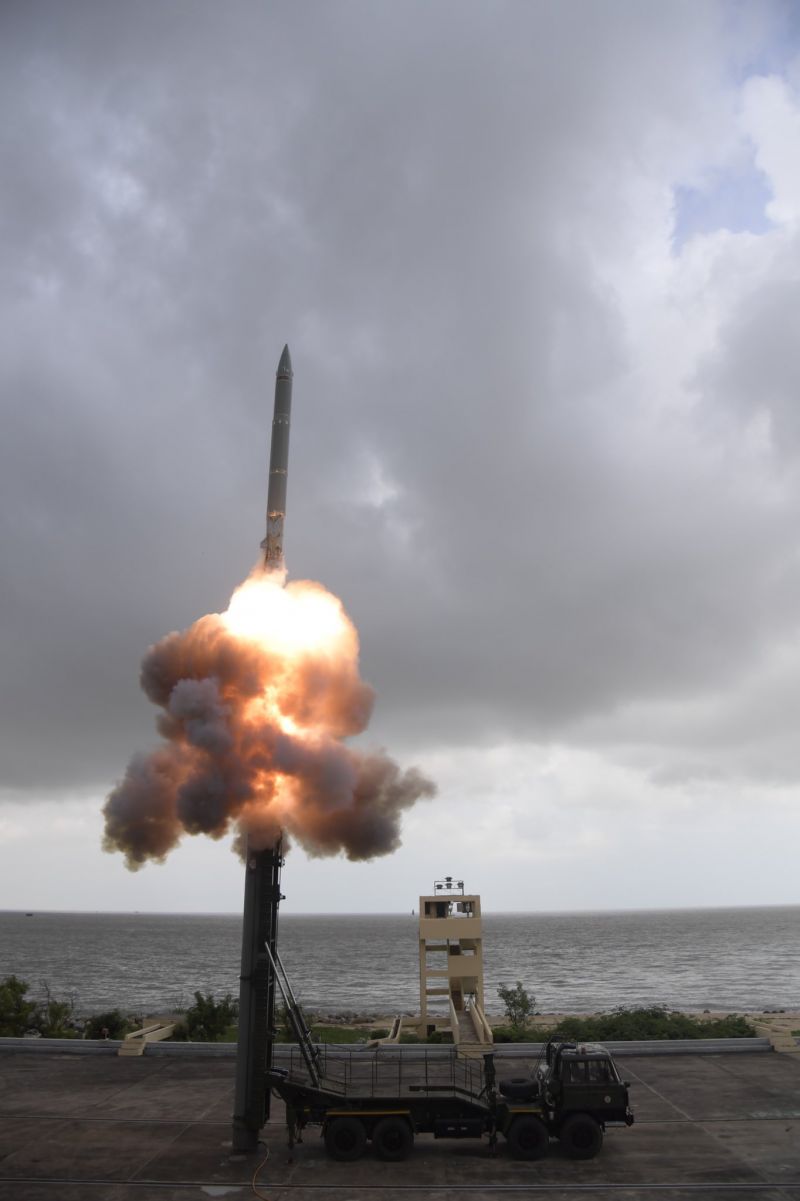Pakistan’s Dilemma in Changing Middle East
By Brig N K Bhatia (Retd)

Pakistan, since its birth has faced the quintessential dilemma of defining its identity, albeit with little success. This dilemma has also defined its approach to its relations with the Muslim world.
It has tried unsuccessfully to sail on two boats; between that of Arab and non-Arab world. Pakistan’s relations with Muslim countries mushroomed depending on which boat it was riding and were accepted as ‘fait accompli’. It failed to pursue an independent course of relations with different blocks within the Muslim world keeping in mind its perceived foreign policy goals. Resultantly, it failed to find its true allies and till date continues to struggle for a definite role within the Muslim world.
Pakistan's policy approach towards the Muslim world have been based on two pillars since its birth: religious affinity and seeking a frontline role in Muslim world. Immediately after its independence, it began its quest to seek a leadership role in Muslim world by holding a World Muslim Conference in 1951 in Karachi, where Pakistani leadership highlighted the importance of retaining pan-Islamic ideas.
It began to look for its security goals by building around alliances by joining the US led security structure (CENTO) and seeking friendship with other Muslim countries. Beginning mid 1960s it changed course and began cultivating its relations with Arab nations and directly involving itself with the armed forces of the Arab states, more specifically after Arab-Israel war of 1967.
By aligning itself with Arab states, Pakistan threw its lot with Organisation of Islamic States (OIC) and became its leading proponent, following Saudi Arabia. Resultantly, it became the leading recipient of financial aid from the West Asian oil monarchies. It also benefitted immensely in field of defence by contributing armed forces personnel with its pilots flying for their air forces and its instructors training their forces and setting up training centres.
Pakistan had a brigade stationed in Riyadh and its personnel guarded the Saudi royal assets. The underlying reason for extending the support was for getting the support of Muslim ‘Umma’ for its rivalry with India over Kashmir.
Over the past one year, there has been a dramatic shift in Pakistan’s articulation of its foreign policy goals. Failure to persuade Saudi led Arab nations to join in condemnation of India against its policies in Kashmir, Pakistan has tried to break away from the Saudi led OIC block of Arab nations.
Pakistan aligned itself with the new Islamic alliance, piggy riding on Turkish and Malaysian leaders in pursuit of its foreign policy goals centred around new support found on Kashmir.
The visit of then Malaysian Prime Minister Mahatir Mohammad’s to Turkey in July, 2019, led to formation of a new bonding between Malaysia and Turkey, touted as a ‘renaissance’ in Islamic world. The statement was welcomed by Pakistan.
However, it was the wording of statement of Mahatir Mohammad calling for ‘relieving the Muslim Ummah from being subjugated by others’ and the three countries standing out from the Arab world that drew attention of Saudi led Middle East countries.
As a follow up on the visit of Mahatir Mohammad to Turkey, the three leaders from Turkey, Malaysia and Pakistan met on side lines of UN General Assembly in September 2019 to forge a common agendato jointly fight the rising global trend of Islamophobia, mainly in the West and decided to launch a dedicated English language TV channel.
As a follow up, Malaysian prime minister Mahathir Mohammad announced holding of an Islamic summit in Kuala Lumpur from December 19-21 to be attended by leaders of Indonesia, Pakistan, Qatar, and Turkey. Inclusion of Iran and omission of Saudi Arabiaposed a direct challenge to Saudi led Islamic world and OIC.
Saudi Arabia was quick to take note and a threat of withdrawal of financial aid and a reminder of disastrous consequences of pursuing foreign policy misadventures was sufficient to deter Pakistan Prime Minister to back track from attending the summit and fall in line with the Saudi led Islamic world.
This was typical Pakistan act of buckling, not knowing which side of the Islamic grouping to support.
Similarly in an outburst on August 5 Pakistan’s foreign minister, Shah Mehmood Qureshi made a call for a special meeting of OIC on the Kashmir issue. He threatened to call a separate meeting of Islamic countries outside the OIC if the same was not convened by Saudi Arabia. This was Pakistan’s latest attack on Saudi leadership. Its allusion of approaching other Islamic countries, more specifically the ones who had held the first ‘mini Islamic Summit’ in Kuala Lumpur invited Saudi riposte and it was asked to return US $1 billion loan and cessation of Saudi oil credit facility.
A post haste visit to Riyadh by Pakistan’s de facto power centre, its Army Chief, accompanied by Director General ISI, was met with cold shoulders with the Saudi King and Crown Prince both declining to meet the two. Apparently Saudi Arabia saw Pakistan as the torch bearer of alternate Islamic power centre being chaperoned by Turkey in conduit by Iran and Qatar.
The changing paradigm of Pakistan’s foreign policy of shifting its narrative away from Saudi led Islamic block and seeking new partnership with Turkey led grouping involving Iran and Qatar once again posed new challenges for its establishment and foreign policy goals.
Meanwhile Arab states, wary of Iranian threats from its proxies and the aggressive Shiite Mullahs, coupled with expanding Turkish ambitions, saw challenges to their survival and opened up engagement with Israel. It seems only a matter of time before majority of Sunni block Arab nations also follow United Arab Emirates (UAE) and Bahrain to formally establish relations with Israel. Saudi Arabia and Israel are also known to maintain close unofficial relations due to growing Iranian threats.
Pakistan with its anti-Israel rhetoric, finds itself totally isolated from Arab world, leaving it little option other than getting further pushed towards Turkey and Iran.
Pakistan faces a catch-22 situation of moving away from Saudi led Arab nations as the economic cost of breaking away from it for Pakistan are colossal, with close to eight million Pakistani nationals employed in Gulf and Middle East. Any misstep would put it at economic peril with disastrous consequences on the domestic front.
Pakistan, once again faced with the quintessential dilemma in pursuit of foreign policy goals has for now fallen onto China to provide it economic, defence and strategic guidance. China is known to have bankrolled Pakistan after Saudi Arabia asked it to return US $ one billion.
Pakistan has been forced to shift its domestic as well as external outlook and put all its eggs in the basket of Chinafor survival and foreign policy goals.Faced with dire financial situation, Pakistan’s economy is dependent on economic aid being pumped in for development of China Pakistan Economic Corridor (CPEC) linked projects.
Most of the employment generation is through the projects being executed under Chinese directions. All developmental and economic activities relating to CPEC, which had slowed down, has picked up pace after Pakistan Army got involved and extracted the coveted position of Chairman CPEC for its nominee.
The expanding Chinese footprint through the Road and Belt Initiative (BRI) has also embraced Iran and Turkey, at the fore front of new Islamic grouping emerging against Saudi Arabia led Arab nations.
Pakistan on the other hand has fallen onto China for complete diplomatic and strategic guidance. As is apparent over last one year, China has been doing Pakistan’s bidding to provide it active support against India in international forums, most predominantly in United Nation Security Council. Similarly, Turkey and Iran have also supported Pakistan’s viewpoint against India.
Pakistan’s current political leadership and its Prime Minister seems to have reconciled to its relationship with China by openly declaring in an interview that “Pakistan’s future is with China. We should be clear on this. Our economic development has now been intertwined with China,” leaving no doubt on Pakistan having become China’s client state in furtherance of its strategic goals.
The rivalry amongst the Muslim Ummah is causing an upheaval and realignment of power play amongst Islamic world. It is leading to political, religious and strategic instability and a race amongst different stakeholders to unseat the Saudi leadership. Pakistan as usual has been playing a dubious role by shifting its loyalties in this game.
Pakistan the proverbial exploiter of its Islamic identity has benefitted immensely from toeing the Saudi and Arab connections, until very recently. Its policies of pursuing terrorism and emerging as a major trouble maker in Kashmir, Afghanistan and other countries has been taken note of by global community.
Having failed to find support amongst the Arab world for its anti-India agenda, it has for now embraced China and closed its eyes to the Chinese atrocities being perpetuated against Muslims in Xinjiang by playing second fiddle to China along with new found friendship with Turkey and Iran, who too seem to be blind to the situation in Xinjiang.
The changing designs of Pakistan’s foreign policy aimed at switching loyalties from its traditional allies to forge a front with those ready to espouse anti-India rhetoric have not gone unnoticed by India.
India has worked successfully on multiple fronts to check mate Pakistan’s designs. Its reach to Arab leadership and strategic engagement with Arab world have enabled an understanding of Indian viewpoint. Similarly, two back to back visits by Indian Defence and Foreign Ministers in the beginning of September were to restore the traditional and centuries old ties between Iran and India. Turkey is emerging as a key trouble maker in Middle East, and now in Caucasia. It is only a matter of time that it is checkmated to prevent it from furthering its expansionist agenda.
India has so far faced up to the Chinese challenge in respect of its efforts to destabilise the situation along its borders with India in Eastern Ladakh. India has enhanced it’s engaged with countries of Pacific Asia who are also at the receiving end of Chinese aggression in South China Sea. India is wary of growing China Pakistan defence nexus and well prepared to militarily face up the challenges along its Northern borders.
*Author is an Indian Army veteran. Views expressed here are personal.



